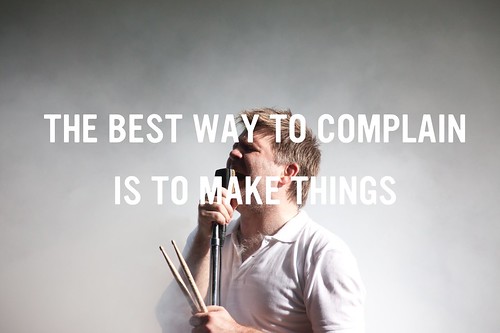Can teddy bears make you more ethical?
nt people to play nice and not cheat each other? Bring toys. Via Harvard Business Review: The finding: Adults are less likely to cheat and more likely to engage in “pro-social” behaviors when reminders of children, such as teddy bears and crayons, are present. The research: Sreedhari Desai and her research partner Francesca Gino had people play classic psychology games in which the subjects controlled how much money other people earned and could earn more themselves if they lied. Half…
1 min read
10 Ways To Read People Like Sherlock Holmes, Backed By Research
e BBC series Sherlock is currently my favorite show on television. Sherlock Holmes instantly decodes someone's life story and personality from a quick look at the person and their belongings. Of course, the show is fiction. But Sherlock Holmes is a great example of expert behavior. How much of his skill could we possess in real life with knowledge of the research on what factors predict which personality traits -- and which signals are reliable? Here's a quick rundown on…
2 minutes
Do gentlemen prefer blondes?
d Saad has an interesting review of research showing that, yes, men are more likely to approach blondes. The study sought to "determine whether the same woman would be differentially approached by men at one of three nightclubs as a function of whether she was a brunette, blonde, or redhead (hair color was manipulated using dye)". The results? Blonde Brunette Redhead Nightclub 1 26 …
1 min read
This Is Why First Impressions Can Be Dangerous
can become a slave to our first impressions. Once we've set them, they can be hard to change. Via David McRaney's You Are Not So Smart: A study in 1997 by Wilkielman, Zajonc, and Shwartz created first impressions in subjects with images of smiles and frowns. The people in the study saw a photo of either a happy or a sad face flash briefly on a screen and then were shown an unfamiliar Chinese character and asked to say…
1 min read
Is a touch on the arm all it takes to make you persuasive?
light touch on the arm dramatically increases compliance with all manner of requests, from asking for money to getting a woman's phone number. Via Richard Wiseman's excellent book 59 Seconds: Change Your Life in Under a Minute: A large number of studies has shown that touching someone the upper arm for just a second or two can have a surprisingly significant effect on how much help they then provide. In one experiment American researchers approached people in the street and…
1 min read
Is complaining about others a good way to make friends?
s. Sharing negative feelings about a third party can increase closeness between two people: We propose that sharing a negative—as compared to a positive—attitude about a third party is particularly effective in promoting closeness between people. Findings from two survey studies and an experiment support this idea. In Studies 1 and 2, participants’ open-ended responses revealed a tendency to recall sharing with their closest friends more negative than positive attitudes about other people. Study 3 established that discovering a shared…
1 min read
The Science Behind Why Dogs Might Just Be Man’s Best Friend
g owners experience a wide range of health benefits. Via Richard Wiseman's excellent book 59 Seconds: Change Your Life in Under a Minute: After carefully following the recovery rates of patients who had suffered a heart attack, Friedmann discovered that those who were dog owners, compared to those without a canine pal, were almost nine times more likely to be alive twelve months later. This remarkable result encouraged scientists to explore other possible benefits of canine companionship, resulting in studies showing…
2 minutes
What everyday object can motivate you to work harder and be a better person?
mirror. From Willpower: Resdiscovering the Greatest Human Strength: When people were placed in front of a mirror, or told that their actions were being filmed, they consistently changed their behavior. These self-conscious people worked harder at laboratory tasks. They gave more valid answers to questionnaires (meaning that their answers jibed more closely with their actual behavior). They were more consistent in their actions, and their actions were also more consistent with their values. And: Whenever people focused on themselves,…
2 minutes






